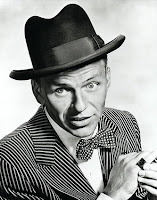week 1:
" this needs to be told through movement, otherwise we fail"
week 2:
"this week i don't really know what to write into the blog, basically we're just making the piece now"
Monday, 30 July 2007
1984 quote
'It was merely the substitute of one piece of nonsense for another. Most of the material that you were dealing with had no connection with anything in the real world, not even the kind of connection that is contained in a direct lie. Statistics were just as much a fantasy in their original version as in their rectified version. A great deal of the time you were expected to make them up out of your head.' (George Orwell, 1984)
technological reproducability


. . .the instant the criterion of authenticity ceases to be applicable to artistic production, the total function of art is reversed. Instead of being based on ritual, it begins to be based on another practice – politics. (Walter Benjamin)
"Morimura respods to and confounds links between his art and Sherman's in To My Little Sister: Cindy Sherman (1998), a remake of her Untitled #69 (1981). In Sherman's photograph from the series "Centerfolds", which employs the horizontal aesthetic of a magazine's double-page spread, she plays a dreamy and suggestive girl without a recognisable identity. Morimura however portrays Sherman herself - depicting her as she depicts the girl - and thus enables the dual elements of person and persona, reality and fantasy, original and variation to mingle" (Nicolas Bissaker in the latest issues of Sleek Magazine)
ontological graffiti



On a wall in a toilet of a Prenzlauer Berg cafe:
To be is to do (Sartre)
To do is to be (Camus)
Do be do be do (Sinatra)
Which after a little search I find out is a misquote of Kurt Vonnegut - who had Socrates as the first quote, Sartre as the second (Ol' Blue Eyes is right however). Maybe the scrawler was unpicking the subtleties of existentialism at the time. . .anyway Vonnegut is really interesting when thinking about dystopias because although his books are generally fairly pessimistic about humanity (that's a broad generalisation) he's also clear on the failure of any system to fully describe its subjects. He's far more interested in fakery, lies and absurdity and also even the creative potential opened up by the impossible demands of bureaucracy. One writer on Vonnegut describes his worlds less as dystopian (in terms of nightmarishly realised utopias) and more akin to the multiplicity of heterotopias. A heterotopia is Foucault's idea of 'another space':
"places that do exist and that are formed in the very founding of society - which are something like counter-sites, a kind of effectively enacted utopia in which the real sites, all the other real sites that can be found within the culture, are simultaneously represented, contested, and inverted. Places of this kind are outside of all places, even though it may be possible to indicate their location in reality. Because these places are absolutely different from all the sites that they reflect and speak about, I shall call them, by way of contrast to utopias, heterotopias. I believe that between utopias and these quite other sites, these heterotopias, there might be a sort of mixed, joint experience, which would be the mirror. The mirror is, after all, a utopia, since it is a placeless place. In the mirror, I see myself there where I am not, in an unreal, virtual space that opens up behind the surface; I am over there, there where I am not, a sort of shadow that gives my own visibility to myself, that enables me to see myself there where I am absent: such is the utopia of the mirror. But it is also a heterotopia in so far as the mirror does exist in reality, where it exerts a sort of counteraction on the position that I occupy. From the standpoint of the mirror I discover my absence from the place where I am since I see myself over there. Starting from this gaze that is, as it were, directed toward me, from the ground of this virtual space that is on the other side of the glass, I come back toward myself; I begin again to direct my eyes toward myself and to reconstitute myself there where I am. The mirror functions as a heterotopia in this respect: it makes this place that I occupy at the moment when I look at myself in the glass at once absolutely real, connected with all the space that surrounds it, and absolutely unreal, since in order to be perceived it has to pass through this virtual point which is over there." (Foucault 1967)
The worlds/states/spaces which are enacted through the negotiation with the audience have the quality of representation or a kind of reality but the insistence on the function of the gaze, and the eye of the camera doubles the space with the mixed, joint experience that Foucault assigns to the mirror. . .
Subscribe to:
Comments (Atom)
